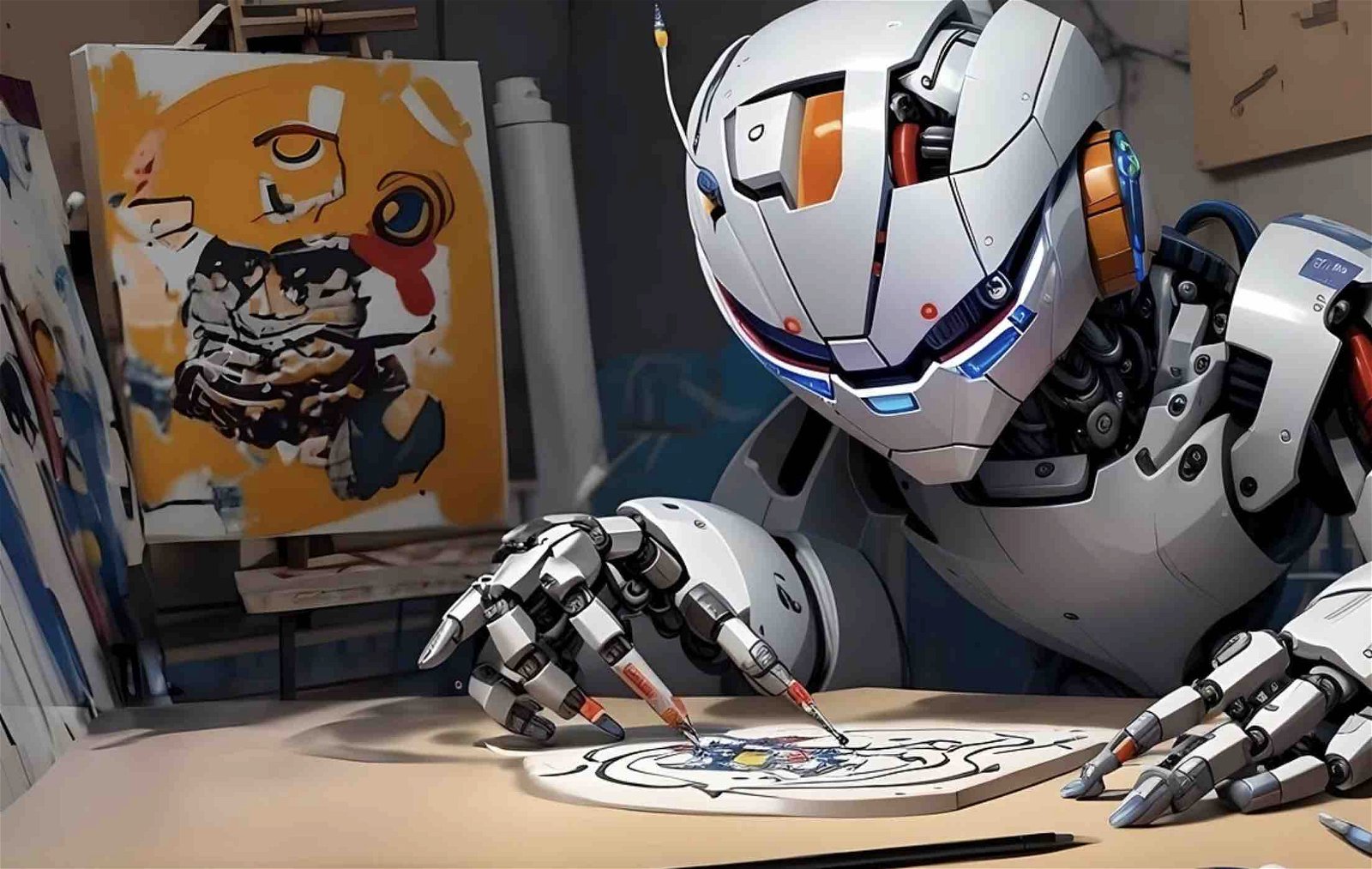In a move that underscores the evolving landscape of the art world, a group of professional artists, supported by Creative Commons, have penned an open letter to the US Congress. Their message is clear: the dialogue about the role and regulation of generative AI in art must be inclusive, ensuring artists have a voice in shaping the future of this transformative technology and broader government policy towards artificial intelligence.
Generative AI, a technology that utilizes algorithms to generate new content, has been making waves in the art community. From creating intricate paintings to composing music, AI’s capabilities have expanded the horizons of what’s possible. However, with this evolution comes a myriad of questions about originality, copyright, and the essence of creativity itself.
The artists’ letter to policymakers emphasizes their daily engagement with AI tools and the insights they can offer.
“Sen. Schumer and Members of Congress, we appreciate the ongoing hearings, ‘Insight Forums,’ and other initiatives focused on regulating generative AI systems… Ultimately, that must mean including artists like us. We use AI tools daily and will provide an important perspective to this increasingly pressing discussion,” their letter states.
Tim Boucher, an author and member of the AI art community, who signed the open letter, told The Debrief that “AI technology is poised to have massive impacts across all of society. Consequently, a whole-of-society approach is needed to confront these changes, and to direct them into forms which will most benefit humanity and the flourishing of the creative human spirit.”
Boucher’s overarching concern is that the vast majority of high level conversations concerning technology and future policy are dominated by established players from government, industry, civil society, and academia.
“Their voices – and the social and economic incentives driving them – tend to drown out everyone else,” Boucher explained. “But it is not just engineers, entrepreneurs, politicians, professors and experts who will be impacted. It is everyone.”
The artists want to have a seat at the table, but some critics aren’t thrilled. They argue that AI-generated art leans heavily on existing works, leading to concerns about intellectual property theft. The literary world, for instance, has seen authors urging AI developers to halt the unauthorized use of books for algorithm training. Critics contend that while AI can replicate styles and patterns, it often does so by drawing extensively from pre-existing works, blurring the lines of originality and potentially infringing on the rights of original creators.
Nettrice Gaskins, who also signed the open letter to Congress, is a digital artist, academic, and cultural critic. She weighed in on the debate, challenging common misconceptions surrounding generative AI, telling The Debrief that “generative AI amplifies and enhances the processes we’ve used in the past, as well as combines art forms and genres to create entirely new works of art.” Gaskins further added, “Artists using generative AI are asking that policymakers understand that art is always about remixing, rediscovering, and inventing new forms. Generating new images from data isn’t the antithesis of originality; it is a continuation of original ideas in art.”
Gaskins argues that art has always pushed boundaries and that critics who argue AI art is simply theft have the wrong idea.
“Artists from decades before, such as Salvadore Dali, produced works that fell into the same realm,” she explained. “It wasn’t considered stolen and was a remix of the original works. Across time, artists have merged genres, created collages and assemblages using other artists’ works. Most times, those other artists were uncredited. Today, we (artists) use data to do the same. For some AI artists, the process (remixing) is similar, but the output is entirely new and unique.”
The integration of AI into the art world isn’t an isolated phenomenon. Across industries, from healthcare to finance, AI’s capabilities are being harnessed, leading to revolutionary changes. However, in the realm of art, the stakes are uniquely intertwined with questions of human creativity, expression, and cultural evolution. As society grapples with the balance between technological advancement and preserving the essence of human creativity, leaving the policy decisions up to Big Tech, politicians, lobbyists, and academics can feel counter-intuitive.
“We believe artists can bring to the table a uniquely creative and humanistic perspective backed by countless hours of first-hand experience and deep intuitive understanding of these tools and their best uses,” Boucher says. “We believe that artists can act as representatives of that defining spark and spirit of expression and the enduring values of human culture passed down through the ages of Truth, Goodness, and Beauty.”
Boucher argues that future AI policy should simply be left to technologists and that the future has always been envisioned by artists, writers, and those dreamers who create new possibilities through their artistic work.
“Just like artificial intelligence itself, which was first the province of science fiction, a great deal of modern technology as we know it today was first dreamed up, and then written down, painted, or sung by visionaries who explored and pushed the boundaries of reality beyond the known into something new and other,” Boucher mused.
“It only makes sense from an innovation perspective once again to turn to artists and creators of all stripes to help us find the right course,” Boucher adds, “one which neither policymakers alone, nor academics, civil society, or industry would find without artists and our open-ended journeys into the what-ifs presented by modern technologies.”
MJ Banias is a journalist and podcaster who covers security and technology. He is the host of The Debrief Weekly Report and Cloak & Dagger | An OSINT Podcast. Follow him on Twitter @mjbanias.

